My Apollo Story
July 16, 2019 [Reposted from Facebook]
Apollo 11 — July 16, 1969
In July 1969, just after finishing college and waiting to begin a new teaching job, I joined millions of others to watch on television the launch, Moon landing, and return to Earth of the Apollo 11 astronauts. The test missions were over, and it was time for the ultimate event. At my family’s home in Sperryville, Virginia, I followed the news regularly back then (and still do), so I must have watched the Wednesday, July 16th, morning launch before heading to my summer job. It was so exciting, though hard to believe possible.
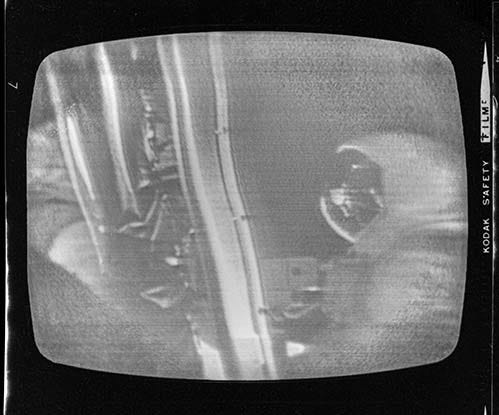
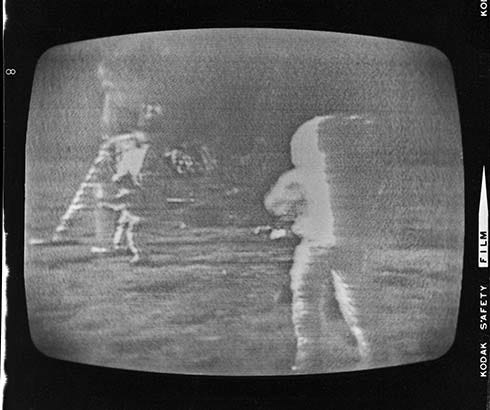
The evening of July 20th, I set up my twin-lens reflex camera in front of the television, adjusted the settings, and turned off the room lights. I had a reel-to-reel tape recorder that I set up near the TV, placing the microphone up to the TV speaker. The signal for the NBC station out of Washington gave the best picture, so that’s what I recorded.
A few minutes before 10 p.m. [local Eastern Daylight Time], I began the tape recorder, letting it run continuously, and then started taking pictures of what I saw on the tube. Reality was hidden somewhere in the darkness behind me; my eyes were fixed on the screen before me. Awe, disbelief, amazement, fear, hope—I’ll never forget the moment.
This audio is a digitization of an analog recording I made on July 20, 1969, of the Apollo 11 moonwalk as broadcast on NBC television. I made the recording using a small reel-to-reel tape recorder with a microphone mounted against the TV speaker. The recording begins as Neal Armstrong was preparing to leave the lunar lander and ends just after President Richard Nixon communicated directly with the moonwalkers. You will occasionally hear the voices of David Brinkley and Frank McGee of NBC explaining what was happening at that moment and seen in the live images coming from the moon.
I do not know the full story, but reportedly NBC at some later time lost, destroyed, or recorded over the archived video tapes of the broadcast that night. Portions of the audio are available, but no complete copy is known to exist. Of course, complete copies of video and audio from other broadcast networks do exist and can be found online.
NASA itself lost extremely important and valuable recordings of the moonwalk. That story is told here.Experiencing a Launch — July 26, 1971
Two years later, I persuaded a photo agency I was working with to get me a press pass that I used to get into the Kennedy Space Center for the launch of Apollo 15. The press location, where the broadcasters set up their cameras, was the closest NASA would allow people to stand to watch the liftoff, though actually, it was three miles across a lagoon to the launch pad. I roamed around the press corps and TV studios while waiting for the launch. When the Saturn V ignited, it first lit the sky, and seconds later, we heard the booming roar of the engines. We all felt the blast. Slowly, the rocket lifted, brighter and brighter, clouds of smoke billowing, the rocket’s engines crackling as it headed out over the Atlantic. I said a prayer that all would go well.
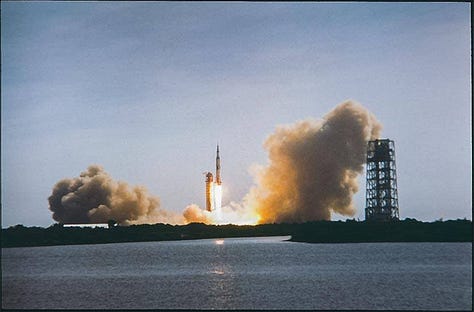
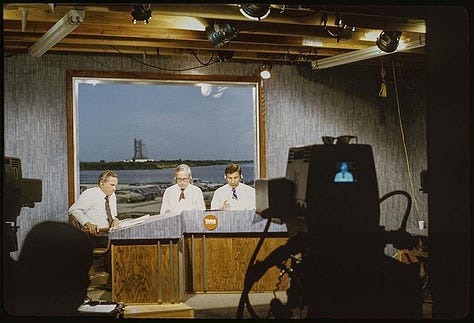
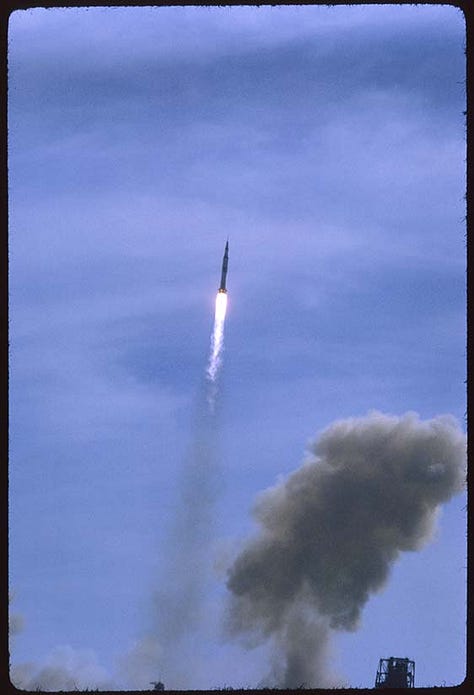
Missions subsequent to Apollo 11 faded from public attention. Neither before that undertaking nor since have we earthlings been so captivated by space exploration. Apollo 11 was a proud moment for America, a time when all of the world’s people came together to celebrate the historic achievement, to dream of what we could become.

